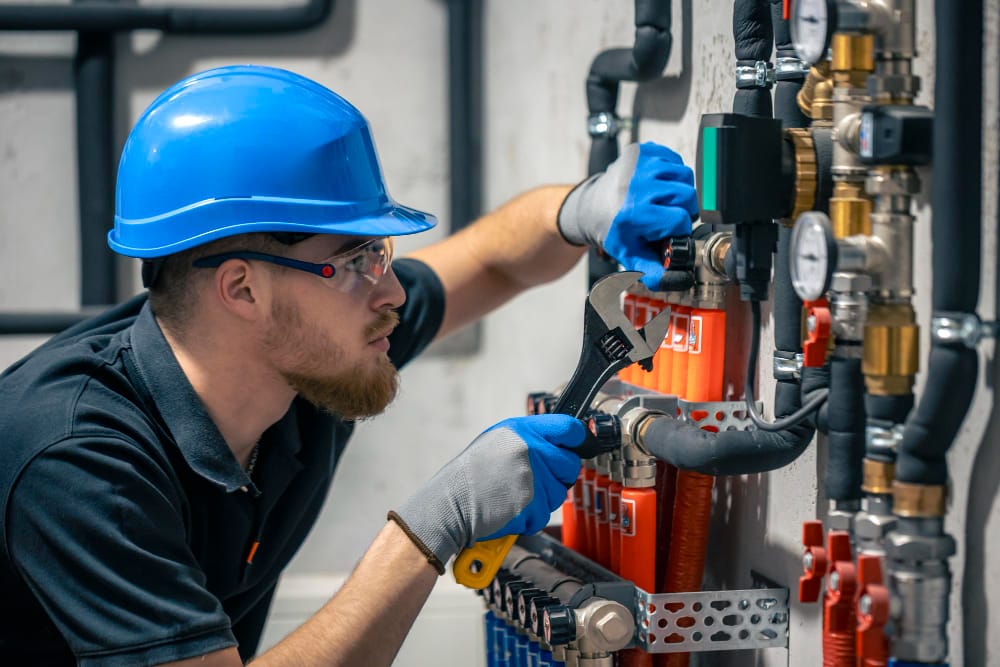Plumbing issues can quickly turn from minor inconveniences into major disruptions. When your water pressure drops, pipes start leaking, or water discoloration appears, searching for experienced repipe specialists becomes a top priority. While it may be tempting to hire a general plumber or even attempt a DIY fix, repiping is a specialized process that demands expertise, precision, and the right materials. Choosing qualified professionals ensures your home’s plumbing system will perform flawlessly for decades to come.
The Hidden Risks of Aging Pipes
Most homeowners don’t think about their plumbing until something goes wrong. Unfortunately, older homes often conceal extensive corrosion and buildup inside their pipes. Galvanized steel, polybutylene, or aging copper lines can cause rust contamination, leaks, and restricted flow. Left unaddressed, these problems can damage drywall, flooring, and even a home’s foundation.
Repipe projects aren’t just about replacing old pipes — they’re about protecting your home’s structure and ensuring the safety of your water supply. That’s why working with true repipe specialists makes all the difference. They have the training and experience to assess your system holistically, identify hidden weak spots, and design a lasting solution tailored to your property.
Why Expertise Matters
A full-home repipe is not a standard plumbing repair. It requires detailed planning, code compliance, and professional-grade tools. Experienced repipe specialists know how to navigate complex home layouts while minimizing disruption. They understand material compatibility, pressure balancing, and the importance of maintaining clean, consistent water flow.
While a general plumber might handle simple leaks, repiping demands deeper expertise. Certified specialists perform the work efficiently, ensuring your walls, ceilings, and fixtures remain intact. The result is a cleaner installation, stronger water pressure, and peace of mind that your home’s plumbing system will perform like new.
Professional vs. General Plumbing Services
It’s easy to confuse repiping with everyday plumbing maintenance, but the two are very different. Here’s how dedicated specialists stand apart from general plumbers:
- Experience: Specialists focus exclusively on water line replacement, mastering the nuances of system-wide installation.
- Tools & Equipment: They use advanced tools such as PEX crimping systems, pipe cameras, and pressure testing devices to ensure perfection.
- Efficiency: Their refined process minimizes downtime — most homes are fully repiped within a few days.
- Quality Assurance: Every connection and fitting is pressure-tested and inspected before the project wraps up.
In short, hiring repipe specialists means you’re not just fixing plumbing — you’re upgrading it for long-term durability.
Understanding the Process
When you contact a repipe expert, the process usually starts with an in-home consultation. The technician inspects your existing plumbing, evaluates water pressure, and identifies signs of corrosion or mineral buildup. Once the assessment is complete, they’ll recommend the best materials and layout for your home.
Here’s a simplified breakdown of what follows:
- Shutting off the water supply and protecting work areas
- Routing new PEX or copper pipes through walls or ceilings
- Replacing shut-off valves and hose connections
- Testing for leaks and verifying code compliance
- Restoring drywall and finishes after installation
The process is clean, efficient, and highly organized — something only professionals with years of experience can deliver.
Material Matters: Why PEX and Copper Lead the Way
Modern repipes typically use PEX or copper pipes. PEX, short for cross-linked polyethylene, has become the standard for most homes due to its flexibility, affordability, and long lifespan. It resists corrosion and can expand slightly under pressure, reducing the risk of burst pipes. Copper, while more expensive, offers unmatched durability and has been the gold standard of plumbing for decades.
Choosing between PEX and copper depends on your home’s layout, budget, and water conditions. Professional repipe specialists will explain the pros and cons of each option and help you select the right material for your needs.
Why Homeowners Trust Local Experts
Repipe projects require local experience — knowledge of regional building codes, water quality, and typical construction types. Homeowners in Sacramento and the Bay Area rely on certified plumbing team professionals who specialize in these exact conditions. Local experts know how to navigate city permits, minimize drywall disruption, and optimize water pressure for multistory homes.
Long-Term Benefits of Hiring Specialists
While repiping may seem like a big investment upfront, the long-term rewards are substantial. Once the project is complete, homeowners enjoy cleaner water, stronger pressure, and reduced risk of leaks or water damage. New systems also improve home resale value and eliminate the recurring cost of patch repairs.
According to Home Improvement Insights, homeowners who invest in whole-home repiping typically recoup much of their cost in property value and efficiency savings within a few years. That makes professional repiping not just a repair — but a smart, future-focused upgrade.
Maintenance and Care After a Repipe
Once your new system is installed, maintenance is simple. Schedule an annual inspection to ensure fittings remain tight and filters are clean. Avoid harsh drain chemicals that can damage protective coatings, and keep your water heater flushed regularly to prevent mineral buildup. These small steps help preserve the quality and longevity of your investment.
Final Thoughts
Your plumbing system is one of the most essential — and overlooked — parts of your home. Hiring qualified repipe specialists ensures your upgrade is done right the first time. From better water flow to long-lasting peace of mind, the benefits of professional installation far outweigh the risks of shortcuts. Invest once, enjoy comfort for decades.

